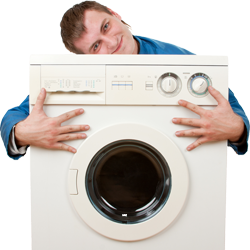Following the lead of many national marketers, some Delaware Valley small business owners are considering canceling or, at minimum, pausing their advertising schedules with social media network Facebook and its co-owned photo-sharing platform, Instagram.
According to the New York Times, "more than 400 companies, from Coca-Cola and Adidas to Ford and Lego, have vowed to halt advertising on the social network, in a growing protest over how it handles hate speech and other harmful content".
With the pandemic figured in, Philadelphia small business owners were expected to spend $289 million on Facebook and Instagram advertising in 2020. This is according to Borrell Associates, a firm that specializes in the collection and analysis of local marketing expenditures in every city across the United States. But these expenditures could shrink if the protests become louder.
Every type of Delaware Valley business imaginable, including clothing stores, plumbers, HVAC repair, funeral homes, restaurants, dentists, and nonprofits, has come to realize how powerfully social media can contribute to their bottom lines.
Part of what makes Facebook and Instagram attractive to small business owners is the enormous reach these platforms have among consumers. Locally, the audience size for these two social media sites now rival Philadelphia radio, TV, cable, and newspaper outlets.
For small business owners considering a hiatus from social media advertising, there is a viable way to redirect these dollars into a different medium without losing the marketing equity or momentum built-up on Facebook.
Read More
Topics
Best Way To Advertise,
social media advertising,
small business owner,
radio advertising,
facebook advertising,
small business,
instagram,
facebook,
social media,
advertise on radio
Based on statistics from the Bureau of Labor Statistics, before the COVID-19 crisis, Delaware Valley households were putting more than $12.3 billion in the bank every year.
Since February, however, Philadelphia area banks and credit unions noticed that customers' savings accounts were beginning to swell to record levels.
According to the Federal Reserve, for many years, the personal savings rate has hovered well below 10%. The PSR is the percentage of personal disposable income that remains after taxes and all other spending.
In April of this year, the PSR hit an all-time high of 33%. The rate remained at stratospheric levels in May, as well. The previous record high was 17.3% in September of 1975 at the tail-end of a deep recession.
There are more than 4783 banks and credit unions in Pennsylvania who would love to earn a large share of this infusion of new savings. To compete, though, requires advertising. By almost any metric, the best way to reach new depositors is by advertising on Philadelphia radio.
Read More
Topics
Best Way To Advertise,
small business owner,
radio advertising,
small business,
bank,
advertise on radio,
credit union,
savings account
From Cherry Hill to Bucks County (and every point in between), Delaware Valley real estate agents see a robust, post-pandemic market shaping up. Home sales are being driven by record low-interest rates.
The average rate for a 30-year fixed rate in June is 3.17%, according to Freddie Mac. This is down from 3.99% June of last year. That difference could save a Philadelphia area home buyer close to $30,000 over the term of a loan.
Data from the Federal Reserve indicates that one of the fast-growing segments of the current real estate market is starter homes. Sales in May for these modest price houses have risen above pre-COVID-19 levels and have hit a three year high.
Feuling the starter home market is demand from millennials. This generation now comprises 37% of all home buyers, says the National Association of Realtors Research Group.
To claim a large share of the market for starter homes, local real estate agents will need to advertise to attract these buyers. By almost any metric, advertising on Philadelphia radio is the best way to reach millennials planning to buy a house, condo, or co-op over the next year.
Read More
Topics
Best Way To Advertise,
small business owner,
radio advertising,
small business,
home buyers,
real estate,
mortgage,
mortgage rates,
home sellers,
advertise on radio,
real estate agent
During lockdown, Delaware Valley consumers have been postponing the purchase of major appliances. Despite the pause in buying, however, local shoppers are still expected to spend $285 million this year on ovens, stoves, refrigerators, freezers, washing machines, dryers, and dishwashers.
Here's how appliance sales in the Philadelphia area will breakdown by category:
- Cooking: $77,400,000
- Refrigerator/Freezer: $71,900,000
- Laundry: $59,100,000
- Other: $77,000,000
Based on traditional buying patterns, at least 60% of all major appliance sales will occur between now and December.
To capture a larger share of all this spending will require local appliance dealers to advertise.
“Think you have a great product?” asks the U.S. Small Business Administration. “Unfortunately, no one’s going to know about it unless you advertise.”
The SBA goes on to say, “Advertising, if done correctly, can do wonders for your product sales, and you know what that means: more revenue and more success for your business”.
By almost any measure, advertising on Philadelphia radio is the best choice for local appliance store owners.
Read More
Topics
Best Way To Advertise,
roi,
return on investment,
retail,
consumer spending,
small business owner,
radio advertising,
small business,
Retail Sales,
retailer,
retail stores,
advertise on radio,
appliance stores
Despite the pandemic, Delaware Valley consumers are expected to spend $270 million on fine jewelry this year. Based on projections from IBISWorld, here's what will be purchased:
- $113 million worth of diamonds
- $40 million worth of watches
- $27 million worth of gold
- $32 million worth of pearls and gemstones
- $47 million in other goods and services
Philadelphia area business owners will now have an easier time capturing a bigger share of jewelry expenditures as a monster competitive force disappears.
This week, Signet, the largest jewelry retailer in the country, announced that by December, it would be closing over 380 stores. Signet's brands familiar to Delaware Valley consumers include Kay, Jared, Zales, and Piercing Pagoda.
To successfully compete for the void created by fewer Signet stores, local retailers will need to advertise, especially between now and the end of the year. This is when 63% of all fine-jewelry sales traditionally occur.
By any metric, the best way to reach local jewelry buyers is by advertising on Philadelphia radio.
Read More
Topics
Best Way To Advertise,
Jewelry Store,
bridal advertising,
wedding advertising,
retail,
consumer spending,
small business owner,
radio advertising,
small business,
Retail Sales,
retailer,
retail stores,
advertise on radio,
jewelry
At the dawn of 2020, Delaware Valley small business owners were expecting the area's retail economy to expand by 4.1%. This optimism was stoked by the National Retail Federation's chief economist who said, "Consumers remain upbeat and have the confidence to spend, and the steady wage growth that has come with the strong job market is fueling their spending. The state of the consumer is very healthy."
By February, however, the country entered into a COVID-19 induced recession. Then, to slow the spread of the pandemic, on March 17, the Governor of Pennsylvania locked the state down. This brought the Philadelphia area's $91.8 billion retail economy to a standstill.
As stores, restaurants, and offices in the Delaware Valley begin to re-open, consumers' appetite for spending is returning. According to Nielsen, loyal radio listeners are very likely to be first in line at the cash registers.
Read More
Topics
Best Way To Advertise,
retail,
consumer spending,
small business owner,
small business,
automotive,
Retail Sales,
retailer,
covid 19,
coronavirus,
corona,
retail stores,
reopen,
recovery,
advertise on radio
Delaware Valley small business owners are learning that 're-opening' may not be an appropriate word for the challenges they face as the Coronavirus crisis winds down. A better term might be 're-introducing'.
Since the Governor of Pennsylvania shuttered the state on March 17 to slow the spread of COVID-19, Philadelphia area consumers have discovered new ways to buy the goods and services they need. It's now the burden of local business owners to lure these customers back. The first step is re-introduction.
In 1922, three local retailers each put a Philadelphia radio station on the air. These included John Wanamaker's WOO, Strawbridge & Clothier's WFI, and Gimbel Brothers' WIP. Since then, local business owners have used radio advertising to introduce themselves successfully to new customers. Radio has also helped these businesses survive recessions, depressions, world wars, flooding, and blizzards. By any metric, advertising on Philadelphia radio remains the most effective tactic a small business owner can use post-pandemic, as well.
Read More
Topics
Best Way To Advertise,
Effective Radio Commercials,
Dayparts,
Time of Day,
roi,
return on investment,
commercial length,
retail,
small business owner,
radio advertising,
small business,
Retail Sales,
retailer,
retail stores,
reopen
More than 85% of Delaware Valley households own at least one vehicle.
Pre-pandemic, 76% of workers spent, on average, 66 minutes every weekday in these cars commuting to-and-from their jobs.
On their way to work, many of these drivers would contribute to the Philadelphia area's $103.4 billion retail economy by visiting the convenience stores, coffeehouses, auto repair centers, gas stations, daycares, grocery stores, or hundreds of other businesses they passed.
At lunchtime, these same cars would take their owners to restaurants, dentist appointments, nail appointments, barbershops, and on an infinite number of other errands.
On the weekends, these vehicles filled the parking lots of hardware stores, furniture stores, car dealers, appliance stores, bowling alleys, movie theatres, and nightclubs,
Then on March 17, when the Governor of Pennsylvania shut down the state to slow the spread of COVID-19, traffic came to a standstill and so did the spending.
There are strong indications, though, that in the Delaware Valley, roads are filling up again.
Read More
Topics
Best Way To Advertise,
Radio Advertising Works,
roi,
return on investment,
retail,
store traffic,
consumer spending,
small business owner,
radio advertising,
small business,
Retail Sales,
retailer,
retail stores,
in-car audio,
vehicle traffic
Delaware Valley small business owners may perceive the continuation of advertising as a luxury right now. This is especially so when compared to the necessity for covering the costs of utilities, inventory, payroll, and rent.
Before pulling the plug, though, business owners from Doylestown to Cherry Hill must consider the consequences of 'going dark', a marketing term which means to stop advertising.
"According to our analysis, short-term decisions to go dark create significant risk for long-term revenue," says Ameneh Atai, Senior Vice President of Commercial Strategy at Nielsen. "This affects both incremental revenue and base sales."
"Our database of long-term effects models suggests that cutting ad spending for the rest of 2020 could lead up-to 11% revenue decrease in 2021," says Ms. Atai. "It could take three to five years of solid and consistent brand building to recover from an extended dark period of media."
"We have a ton of evidence in our historical analysis," adds Nielsen's Tsvetan Tsvetkov, Senior Vice President of Agency and Advertiser Solutions. "Companies that step away from advertising efforts for a period of time, whether it's a couple of quarters or a full year or longer lose the momentum they have built over time the minute they stop. To recover takes a long, long time."
To avoid the economic risks of going dark, Delaware Valley small business owners need to make sure every dollar spent on advertising produces solid returns. By most marketing metrics, advertising on Philadelphia radio could prove to be the best option.
Read More
Topics
Best Way To Advertise,
roi,
return on investment,
retail,
small business owner,
radio advertising,
small business,
reach,
reach and frequency,
Retail Sales,
retailer,
retail stores
Type "PHILADELPHIA REAL ESTATE AGENTS" into Google. In slightly over a half-second, the search will deliver 27,800,000 results. Similar searches for Chesterbrook, Penn Wynne, Ardmore, and West Conshohocken produce a proportional number of returns.
Despite the economic hardships imposed by the Coronavirus crisis on Delaware Valley consumers, the demand for real estate is booming.
The Wall Street Journal published a trend this week indicating that mortgage applications for purchase a home have achieved levels equal to last year.
According to redfin.com, home buying demand is 16.5% higher now than it was pre-COVID-19 on a seasonally adjusted basis.
Redfin attributes this explosive growth in real estate shoppers to two factors, including record-low mortgage rates. The other primary driver is a migration trend from expensive metropolitan areas as buyers hunt for more space at lower prices.
To capture a larger share of the robust market, local real estate agents need to stand apart from the millions of Google results. Advertising on Philadelphia radio will help accomplish this. Here's why.
Read More
Topics
Philadelphia Small Business Owner,
Streaming Audio,
newspaper advertising,
social media advertising,
television advertising,
Online Advertising,
small business owner,
radio advertising,
small business,
home buyers,
real estate,
pay-TV,
home sellers












